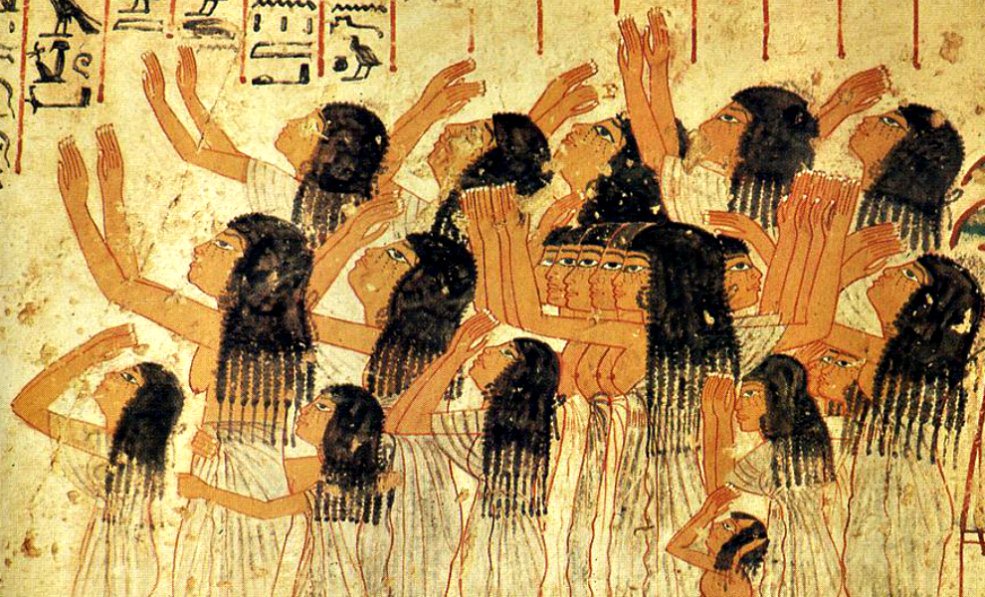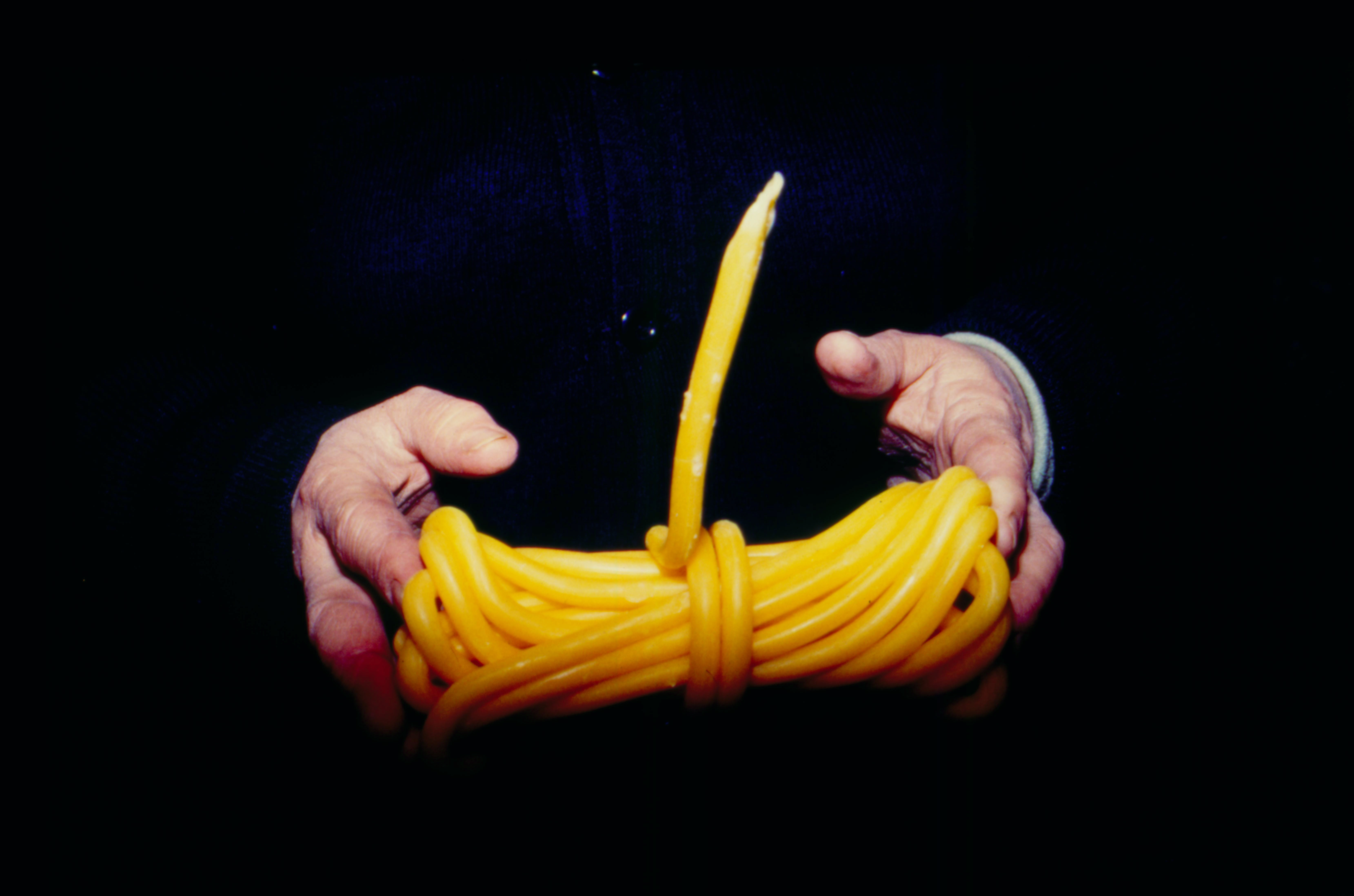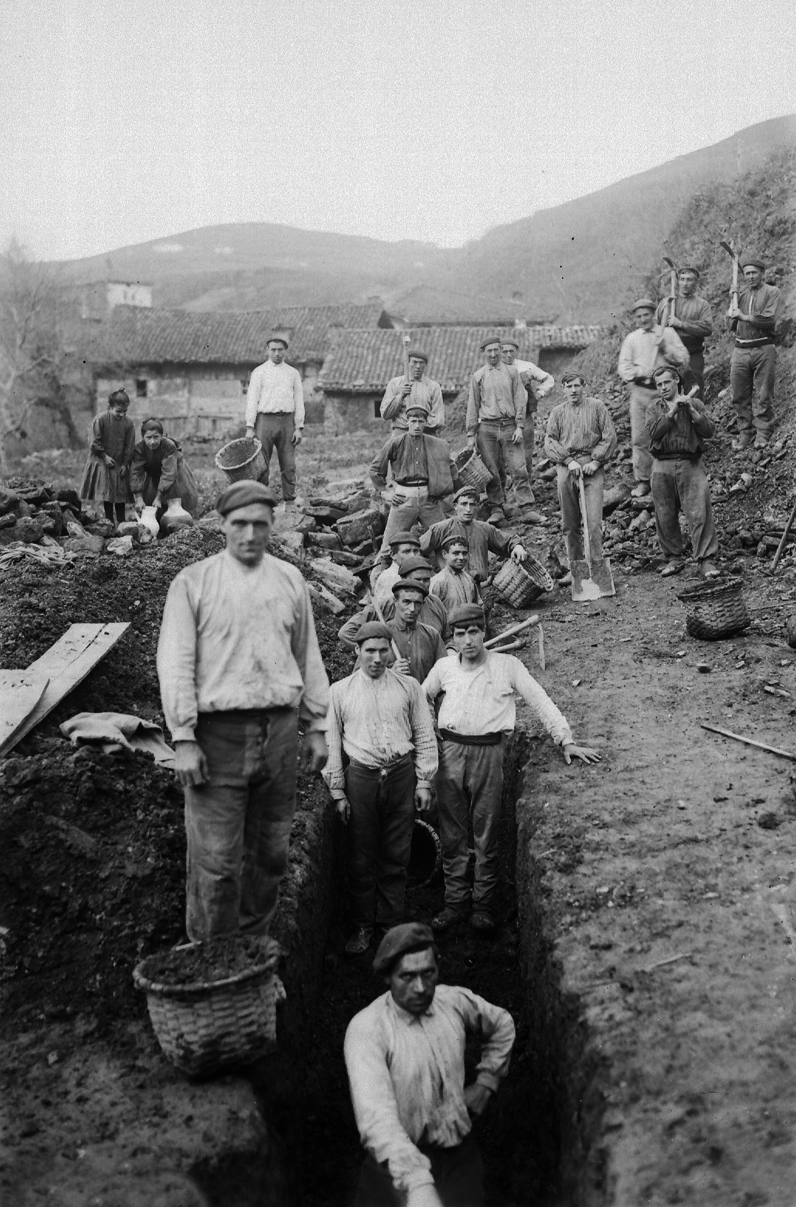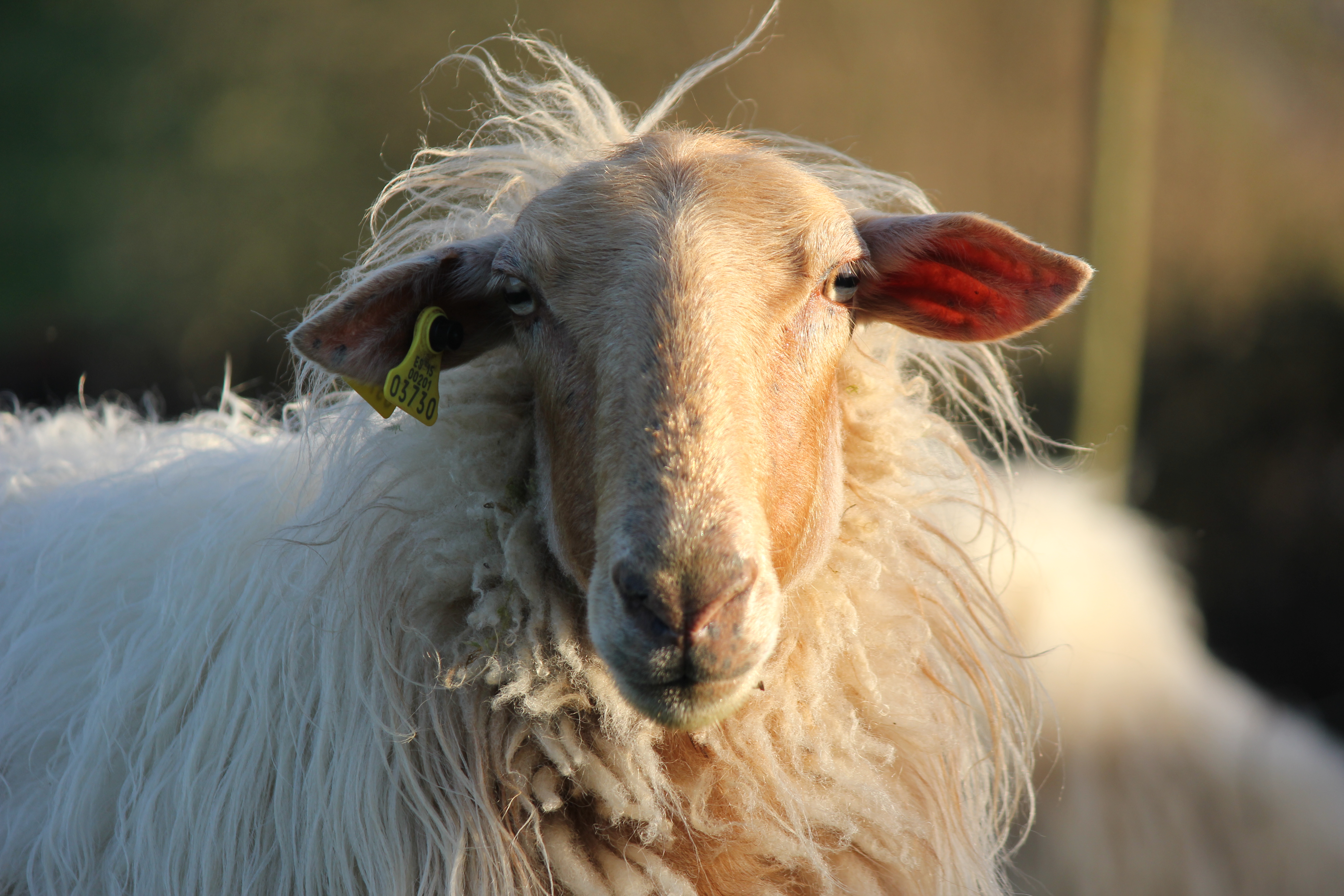Basque ethnography at a glance

Detail of mural paintings at Ramose’s tomb, c. 1350 BC. Photograph taken from ancient-origins.es.
Recitation of poetry at funeral ceremonies is a time-honoured occupation traditionally dominated by women. In fact, an elegy is typically a poem of lament for the dead. Professional mourning is still practiced in cultures across the globe and was once common here in the Basque Country. (more…)

Grave beeswax candle. Labayru Fundazioa Photographic Archive.
Field research shows relevant participants in old-time funeral processions, usually relatives or neighbours of the deceased, bore offerings of bread and light to be placed on the symbolic family grave in church. This tradition remained in many parishes until the 1960s. (more…)

Old-time working bee. Zeanuri (Bizkaia). Felipe Manterola Collection. Labayru Fundazioa Photographic Archive.
In Basque-speaking locations the provision of services to the neighbourhood is known as auzolana. Communal work was more common in the past, partly because provincial and local councils have budgets to cover a wider range of needs and wants for all now than before. Such mandatory works for the community to which every household still contributes in some localities in Álava are there called veredas. (more…)


